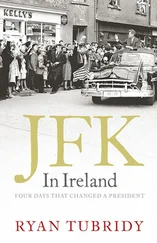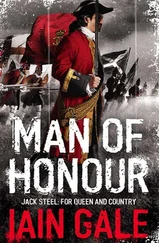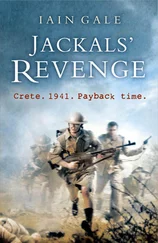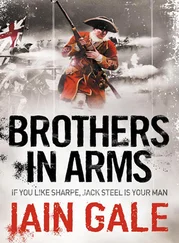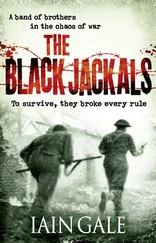He found the Duke still seated at the dinner table, on which, although the dishes had been removed, there yet remained eight wine glasses and a half-full decanter of port. Everywhere – across the table, the chairs, the floor – lay papers. Maps, plans, orders of battle, reports. Wellington did not look up, continued to read.
‘General d’Alava was well?’
‘Quite well, sir. He sends his warmest regards.’
‘Oblige me, De Lancey. That piece of paper. There. Yes, that one. A despatch from General von Ziethen. Read it, please.’
‘Sir, I myself have come with a despatch.’
‘Quite so. Quite so.’ Wellington looked up. ‘And I presume I am correct in supposing that it will tell me that Bonaparte has attacked the Prussians … at Charleroi?’
‘Yes sir. But how … ?’
‘Read Ziethen’s despatch. Go on.’
De Lancey picked up the folded piece of parchment, and opened it. It was brief. A pointed cry for aid. The Prussians had indeed been attacked, at Thuin. Which would indicate that the initial French objective was Charleroi.
‘It is as we thought, your Grace. The secondary French plan. Bonaparte intends to push between us and the Prussians. To destroy first their army and then our own. In detail.’
It was just as d’Alava had predicted. Driving a wedge between the two armies, snuffing out first one, then the other.
‘Sir, we must act. What do you intend? We should surely alert the First Division. Call the reserve to arms. What are your orders, sir?’
‘My orders, Sir William, will be made plain by and by. It is not my intention, however, to amuse Bonaparte’s many spies and other fine friends in this city by running around Brussels like some dumb-struck virgin on her wedding night. Besides, I believe it may be a feint.’
In the wall directly behind Wellington a door opened in the panelling and six men entered. Staff officers. A gracious welter of red, blue and gold. Fitzroy Somerset, the Duke’s secretary; Sir Alexander Gordon, his principal aide-de-camp; George Lennox and George Cathcart, more aides; from De Lancey’s own office, Alexander Abercromby of the Guards; and George Scovell. Wellington addressed them, without turning his head from his papers.
‘Ah, gentlemen. To work. There is much to do.’
Half an hour later De Lancey, still riding the aide’s horse, pulled up outside his own house. Inside he found his staff – a dozen young men, junior officers mostly – all crowded around his young wife. They were by turns garrulous, detached, flirtatious, earnest. These were his chosen ones, the men who would carry the war and word of how to wage it to every brigade, every battalion. Will Cameron, young Ed Fitzgerald, Charles Beckwith in his distinctive rifleman’s green, James Shaw, the hero of Cuidad Rodrigo. Seeing him enter, their laughter stopped.
‘All right, gentlemen, as you were. The world is not yet come to an end. Magdalene, my dear, I am sure that you will forgive us if we make our headquarters in the dining room. Charles, ensure if you please that any messengers know to wait in the drawing room. Magdalene, my sweet, we shall need some sustenance. Perhaps cook would prepare us a little supper and a sufficient quantity of green tea. I suspect that we shall be on this business the entire evening.’
He sensed disquiet. Smiled.
‘No, no, gentlemen. Do not be alarmed. Rest assured that you will – all of you – be able to spend some time at the Duchess’s dance. Indeed the Commander-in-Chief himself has commanded it. All will go ahead as planned. William, be a good fellow and go and seek out Mr Jackson. More than likely you will find him walking alone in the park.’
His comment about the contemplative Jackson served to lighten the mood in the room.
‘And Edward, take yourself off and see if you can run to earth one Colonel Meyer, of the 3rd German Legion Hussars. His men are to be our couriers and escorts for the night.’
As the young men left to go about their errands, De Lancey began to feel the burden of his position. He realized that whatever should soon happen on the battlefield, this would most likely be for him a defining moment. It was his reponsibility to ensure that everything worked perfectly, otherwise disaster would ensue. It was he who would guarantee that every one of the troops of the allied army, some 95,000 men, would arrive at precisely the destination for which Wellington intended them, at precisely the correct moment. And that when they arrived they would be provided with the right equipment, and the right ammunition, in sufficient quantity.
Flashing him a nervous, sweet smile, Magdalene left to consult with the cook. De Lancey walked to the dining room, extracted from his soft leather valise the sheaf of order papers which Wellington had given him and laid them on the table before him. Other officers began to arrive now. William Gomm of the Coldstream, together with Hollis Bradford of the First Guards, both fresh from a shopping expedition, laden with bundles of lace; George Dawson of the Dragoons and Johnny Jessop of the 44th. And other, younger men, captains mostly – and now the lieutenants, Peter Barrailler and, at last, Basil Jackson, who had been discovered, as De Lancey had predicted, sitting in the Parc, reading Byron. Sixteen assistant quartermasters general; twelve deputy assistant quartermasters general. His military family.
Within minutes the room had become a scene of frenetic activity as the staff set about their business. Maps appeared from cylindrical carrying cases and were spread on the table to show the better of the roads and the capacity in tonnes of every bridge – and whether it was suited to taking artillery or cavalry. And around the long table the officers took up their stations, became in effect so many clerks, writing out in neat copperplate, in duplicate, every one of the Duke’s orders:
Dörnberg’s cavalry, to march upon Vilvorde;
Uxbridge’s cavalry, save the 2nd Hussars, to collect at Ninove;
The 1st Division to collect at Ath and be ready to move;
The 3rd Division to collect at Braine-le-Comte;
The 4th Division to collect at Grammont;
The 5th Division, the 81st Regiment and the Hanoverians of the 6th Division to be ready to leave Brussels momentarily;
The Duke of Brunswick’s Corps to collect on the road between Brussels and Vilvorde;
The Nassau troops to collect on the Louvrain road;
The Hanoverians of the 5th Division to collect at Hal and to march tomorrow towards Brussels;
The Prince of Orange to collect, at Nivelles, the 2nd and 3rd Divisions under Perponcher-Sidletsky and Baron Chassé;
The artillery to be ready to move off at daylight.
In effect the entire army was being placed in a state of readiness to move. But, as far as De Lancey could see, no unit had actually been ordered on to the offensive. Caution. Wellington was waiting. Would not move directly to help the Prussians. Did not believe that it might not be a feint. But what if d’Alava had been right? Equally, Wellington might be correct.
The French might intend to move against his right. But De Lancey also felt a sense of unease. He decided that the following morning, before the army moved off, he would send Magdalene away – to Antwerp, safe from the threat of what, to both he and the Spaniard, now seemed to be the obvious direction of French attack.
For over two hours the staff scribbled and copied, blotted, folded and sealed; sent the messages into the anteroom to the waiting Hussars and filed their duplicates at the end of the table. And all the time De Lancey pored over the maps; occasionally, noticing an anomaly, changed a route, recalled an order. And all the time Magdalene and the servants brought tea in pots and urns and whatever supper cook had been able to find for the officers – toasts and savouries, mostly. Not much was eaten, for no sooner would there be a slowing-down in the work than De Lancey, remembering something else, would call for a change of route, or issue an entirely new order.
Читать дальше



